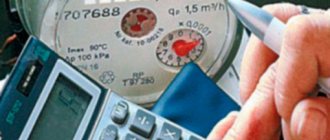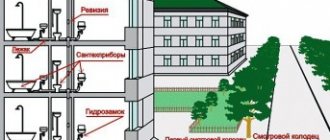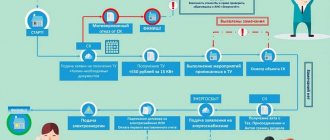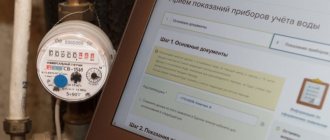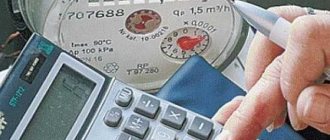Home/Water supply and sanitation/Unauthorized connection of water supply
Attention
Unauthorized connection to water supply networks is illegal use of water resources. This is not only an offense, but can provoke unforeseen and dangerous consequences, including serious breakdowns in the water supply system. Unfortunately, many unscrupulous users are not stopped by possible punishment, so every year the number of cases of illegal use of water supply is steadily growing.
When is a connection to a water supply system considered unauthorized?
In the legal environment, unauthorized connection to the water supply network means unauthorized access of a person to a resource without concluding an agreement with the water supplier or in case of identified violations of the technical regulations for this work. Legal connection is carried out only after concluding an agreement with the water utility and obtaining permission to transport water.
It is a violation to use the water supply network without installing metering devices or meters. Devices are needed in order to track actual water consumption, and their absence makes this task impossible for regulatory authorities. According to current legislation, a subscriber is a person who owns water supply facilities connected to the water supply system under an agreement with Vodokanal.
Attention! If you have any questions, you can chat for free with a lawyer at the bottom of the screen or call Moscow; Saint Petersburg; Free call for all of Russia.
Responsibilities of individuals
Judicial practice has examples of claims against individuals who made unauthorized connections into pipelines of engineering systems.
In addition to the fact that it is impossible to consume water without a contract, it is recommended to follow several more important rules .
- All regulations for the use of water supply and other communications must be observed.
- Compliance with safety precautions is mandatory.
- Among the consumer's responsibilities is access to representatives of the water utility or other service authority to the water supply system to check its operation, maintenance, and repair.
ATTENTION! Individuals should also know how to legalize a connection to the network in a private home, since an illegal pipeline will cause fines from the water utility, disconnection from the network, and other problems.
If water utility workers discover any violations, they can draw up a report , file a claim against the consumer, and impose a fine .
Disputes with the water utility in the presence of violations of the law will only entail additional costs.
Normative base
The procedure for connecting to the water supply system is regulated by a number of regulations. Thus, the procedure for this procedure is established by Decree of the Government of the Russian Federation No. 167 “Rules for the use of public water supply and sewerage systems in Russia.” Next comes Resolution of the PRF No. 354 “Rules for the provision of utility services to owners and users of premises in apartment buildings and residential buildings.” According to the above documents, unauthorized insertion of pipes without drawing up an agreement with the water supply company is considered illegal. Based on these rules, the utility company can file a claim against the violator.
In Art. 20 Federal Law No. 416 “On Water Supply and Sanitation” identifies objects that must be accounted for. These include quantities:
- water transported to the user over a certain time according to water supply conditions;
- water received by the person operating the water supply section;
- wastewater received from the subscriber and transported by specialized organizations.
Administrative punishment for unauthorized connection of water supply is established by Article 7.20 of the Code of Administrative Offenses of the Russian Federation “Unauthorized connection to centralized water supply and sanitation systems.” Its legal basis is based on Decree of the Russian Federation No. 167 of 02.12.99 and a number of other regulatory documents. Monitoring compliance with the rules for the consumption of water resources is carried out by officials representing the bodies responsible for water supply facilities, as well as the police (Articles 23.23 and 28.3 of the Code of Administrative Offenses of the Russian Federation)
Rules for connecting to the water supply network
Since the operation of the systems is controlled by water and wastewater services enterprises, the installation of new branches is the functional responsibilities of the service specialists. Participation in the procedure is possible by prior agreement with the relevant supplier organization. The stages of legal tie-in are as follows:
- conclusion of an agreement for the provision of services, payment;
- carrying out work - laying pipes according to the project, etc.;
- input into the main system using technical devices and with the participation of specialists;
- installation and verification of water meters.
To minimize conflicts between the water and utility sector and the consumer in matters of compliance with operating rules and compliance of measuring instruments with metrological characteristics, the control procedure for such devices is mandatory in Russia. Carried out according to the requirements:
- Federal Law of the Russian Federation dated June 26, 2008 No. 102-FZ (as amended on June 23, 2014) “On ensuring the uniformity of measurements”;
- Decree of the Government of Russia dated 05/06/2011 No. 354 (as amended on 03/27/2019 as amended on 07/10/2018) “On the provision of utility services to owners and users of premises in apartment buildings and residential buildings” together with the “Rules for the provision of ...”.
- for subscribers of the capital, additional clarification is contained in the Moscow Government Decree No. 831-PP dated July 27, 2019 “On amendments to the Moscow Government Decree No. 77-PP dated February 10, 2004.”
Now the check is carried out according to the recommended instructions in the technical data sheet of the meter. Typically, this is every 4 years for a hot water meter, 6 for cold water. During operation, subscribers must strictly follow the rules for the general use of public water supply and sewerage systems. Prohibited:
- involve persons who do not have permission to carry out the relevant work;
- include in the installation devices that do not comply with the technical regulations for insertion;
- make any changes related to the operation of meters and other control and measuring devices.
Ignoring the above conditions may result in adverse consequences:
- reducing pressure in pipes on all floors of housing construction;
- due to the absence or insufficient disinfection of water - deterioration of its drinking properties;
- improper installation will affect the operation of the entire system as a whole;
- the occurrence of disagreements between subscribers (flooding, etc.).
Compliance with safety precautions is an indisputable condition at all stages of equipment operation.
Rules for connecting to water supply
Since the water supply is under the control of the utility service, connecting new subscribers is the responsibility of these specialists. Independent connection is also possible, but only after prior approval of this issue with the communal farm. Then the tie-in procedure will be carried out by utilities.
The installation of a water pipeline occurs in three stages:
- conclusion of an agreement with the water and utility sector;
- laying a pipeline;
- connection to the main line in accordance with legal requirements.
IMPORTANT
Water supply elements must be connected to the main in a certain way using specialized equipment. Only employees of the water supply organization are allowed to work; meters are required to be installed, and scheduled technical inspections of water supply equipment are carried out.
The subscriber is prohibited from:
- use unqualified services when installing water pipes;
- connect to the system devices that are not provided for by the rules of the connection procedure;
- interfere with the operation of meters and other control and measuring instruments;
- drain water from heating equipment.
advant24.ru
[place of signing of the act] [date, month, year] [Position, full name.
I.O.], being a representative of [name of water supply and sewerage organization], acting on the basis of [name of document confirming authority], in the presence of [position, full name.
I. O. persons present during the inspection] drew up this act on the following: [Date, month, year] during the inspection, unauthorized connection and use of [name of legal entity] water supply and sewerage systems was established.
The water supply and sewerage systems are connected to an object located at the address: [fill in as appropriate], the owner of which is [name of legal entity].
ACT on connection (technological connection) of the facility, (name of the organization) hereinafter referred to as the organization of water supply and sewerage facilities, represented by (name of the customer) hereinafter referred to as the customer, represented by , (position, surname, first name, patronymic) acting on the basis of , (regulations, charter, power of attorney - indicate what is required) on the other hand, hereinafter referred to as the parties, has drawn up this document that the organization of the water supply and sewerage sector has carried out the activities, provided for by the rules of cold water supply and sanitation, approved by the decree of the Government of the Russian Federation, the agreement on connection (technological connection) to the centralized cold water supply system from » » 20
Act on refusal to provide access to the common property of an apartment building for carrying out repair work to replace hot and cold water supply risers
___________ for carrying out repair work to replace hot and cold water supply risers; informed of the need to carry out this type of work on the common property of an apartment building; warned of liability for failure to carry out repair work to replace hot and cold water supply risers and that for this reason the occurrence of emergency situations falls on the owner.
This is what we sign:
- ___________________________________________________ (signature) ___________________________________________________ (signature) ___________________________________________________ (signature)
No. ____ house No. _____ on the street. ______________ mountains
___________ ________________________________________________________________ (full name) refused to receive and sign the notification.
Punishment for unauthorized connection of water supply
Unauthorized connection of water supply is the reason for the application of penalties:
- for organizations – from 20 to 30 thousand rubles;
- for officials - 2-3 thousand rubles;
- for citizens and individual entrepreneurs – 1-1.5 thousand rubles.
Representatives of the water supply and communal services draw up a report indicating the violations identified during inspections, information about the violator and the service provider. Based on this document, the person is brought to administrative responsibility.
Attention
If the fact of long-term illegal use of water has been revealed, the violator faces a fine, which is calculated using the formula S = P*D*V , where P is the maximum pipe diameter, m3; D – days in the past six months; V is the cost of m3 of water. The result is multiplied by the number of days the water was consumed illegally. Its value can be much larger than the monthly payments for water use.
In addition to fines for unauthorized connection of water supply, the offender may be subject to criminal liability regulated by Article 165 of the Criminal Code of the Russian Federation. Then the person faces imprisonment, since such a crime is regarded as theft of property.
In any case, if an illegal tap is discovered, it will be dismantled and the facility will be left without water supply.
What is illegal tapping
Illegal tapping into a sewer is the connection of a subscriber to the network without the prior permission of its owner or responsible organization. As a rule, such actions are carried out by residents of private houses. They cut into pipelines and pose a risk of overloading the system. Various types of problems arise:
- lack of technical control over the subscriber connection procedure;
- changing the network operating mode;
- an increase in the amount of waste that the responsible organizations are not aware of.
For residents of apartment buildings such problems do not exist. Connecting to the sewer system of someone else's apartment makes no sense and is extremely technically difficult. In addition, the question of payment for sewerage services arises, which further complicates the problem. Each apartment is connected to a public sewer during the construction stage. The configuration of the intra-house MKD systems is such that there is access to the riser in each residential section. There is no point in unauthorized connection to the system of someone else’s apartment, and you will have to answer for your actions in accordance with current standards.
Only residents of the private sector have the opportunity to illegally connect a sewer system if a main line runs through their street. The desire to use a central sewerage network is understandable - the concern for waste disposal is removed, and the costs of periodic pumping and waste removal are reduced. As a rule, liquids move through pipelines by gravity. This simplifies the connection process. Since it is quite possible to crash into a sewer without turning it off, owners of private houses often take this step.
Who gives permission
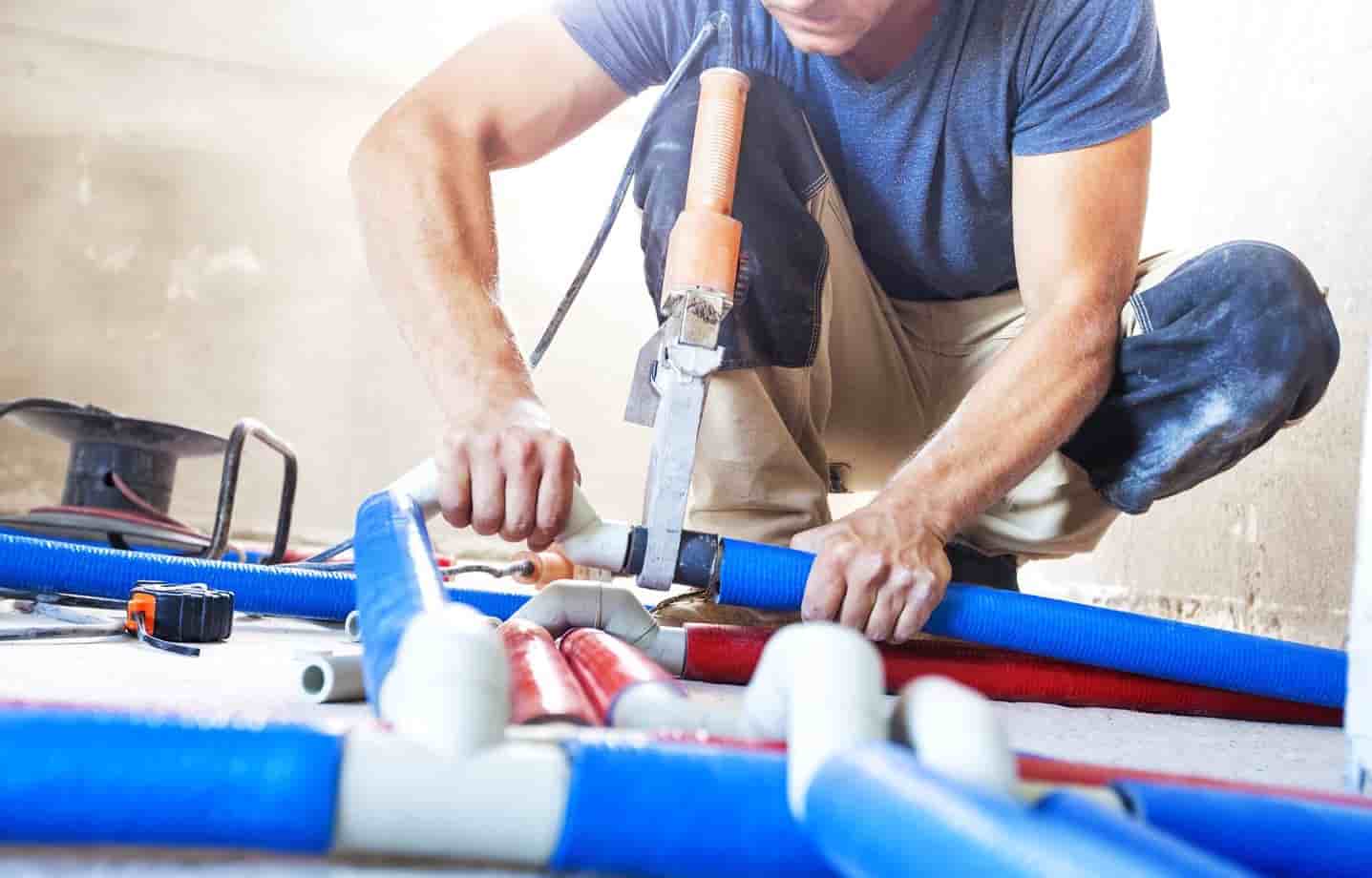
An agreement for connecting a new subscriber must be concluded with the owner of the sewerage network. As a rule, in populated areas this is Vodokanal (or another organization of a similar nature). Illegal connection to the sewer entails liability, the severity of which depends on the amount of damage caused.
To draw up a contract, the home owner needs to collect a package of documents:
- general plan of the land plot, as well as a diagram of the existing sewer network;
- documents on ownership of the land plot and buildings located on it;
- connection diagram to the main line (collector);
- permission from the architecture department;
- if the pipe laying line crosses another type of highway (electricity, telephone, water supply, etc.), you will need to obtain permission from their owners;
- consent of neighbors, expressed in writing;
- application to the management company about the time of the procedure.
If an illegal tap into the sewer is detected, a fine and dismantling are provided. However, in some situations, Vodokanal employees meet users halfway. If the work is carried out in accordance with the requirements of SNiP and other regulations, they may only be required to pay a fine and legalize the connection. Such cases do occur, but it is not recommended to count on such an outcome. Ultimately, the decision rests with officials who can see the problem from their own point of view.
Also read: Shaped parts of sewer pipes: types, types, advantages
Amounts of fines
The amount of the fine varies depending on the status of the offender:
- for a private (individual) person - 1-1.5 thousand rubles;
- for officials the amount will be 2-3 thousand rubles;
- legal entities will have to pay from 20 to 30 thousand.
However, that's not all. In addition to the fine, you will have to pay for the use of the system for 6 months, and disconnect and dismantle the illegal connection at your own expense.
If the previous owners of the house, without the permission of the Vodokanal, crashed into the central sewer, and the new owner discovered this and immediately contacted the Vodokanal, no sanctions will be applied to him. The issue will be resolved in a working manner - concluding an agreement, registering a new subscriber. It’s another matter if the old owners made an unauthorized connection, and the new owner did not register the connection and continued to illegally use the sewer. In this case, he will be held responsible. Taking this into account, it is more correct (and cheaper) to immediately conclude a formal agreement with Vodokanal.
Financial losses possible due to unauthorized tapping significantly exceed the costs of an official connection to the drainage system. But fines for tapping into a storm drain differ markedly - with a minimum amount of 500 rubles, the maximum can be 8 million or more. It all depends on the volume and quality of waste. For industrial enterprises or large landowners, unauthorized use of stormwater systems is fraught with large losses.
In addition, the consequences may extend from the administrative sphere to the criminal. If an emergency situation arises as a result of an unauthorized connection, a case may be opened against the culprit and a sentence of imprisonment may be imposed. Illegal tapping into a sewer, for which the culprit will bear responsibility. Will affect many residents of the private sector and create serious problems for them.
Illegal connection of water supply to a well
Private residences are most often connected to wells. This is not only cheap, but also allows you to use communications autonomously, since the water source is non-centralized. However, underground sources are minerals and fall under the requirements of Federal Law of the Russian Federation No. 2395-1 “On Subsoil”, which states that in order to use subsoil one must obtain a license. This applies in particular to entrepreneurs.
IMPORTANT
Since an artesian well contains a lot of fresh water, such a source is strategic. Article 19 of the Federal Law of the Russian Federation No. 2395-1 determines the possibility of using water reserves from a well without a license only those that are not listed on the state balance sheet, and the amount of pumped water is no more than 100 m3 per day. In addition, aquifers should not belong to the centralized water supply system. Any commercial activities in relation to water are prohibited and require a license: the resource can only be used for personal needs.
Unauthorized connection of a water supply to an ownerless well
Accounting for abandoned objects involves certain difficulties for governing bodies. Duties and responsibilities for maintaining a water supply system without an owner are transferred to municipal institutions that maintain such facilities at the expense of budgetary funds.
According to Article 8 of the Federal Law of the Russian Federation No. 416, the RSO is responsible for the operation of identified abandoned wells after approval of the act of transferring the object into the ownership of the water and wastewater services sector. Consequently, connection to a registered well is carried out in the same way as the procedure for connecting to a centralized water supply network - after concluding a contract and carrying out engineering work on the water supply section.
The concept of unauthorized connection
Unauthorized tapping into the water supply network is considered as unauthorized citizen access to resources. In this case, no agreement has been drawn up between the person and the service provider, or obvious violations of the rules of technical significance have been identified.
A connection to the network will be legal only in a situation where it is carried out after drawing up an agreement with the water utility and after obtaining permission to transport the resource. A violation is understood to be the use of water supply without installing metering devices .
These devices are needed to track how much water a citizen has consumed over a certain period of time. You can connect to a centralized water supply only by agreement with the water utility.
Additional accrual
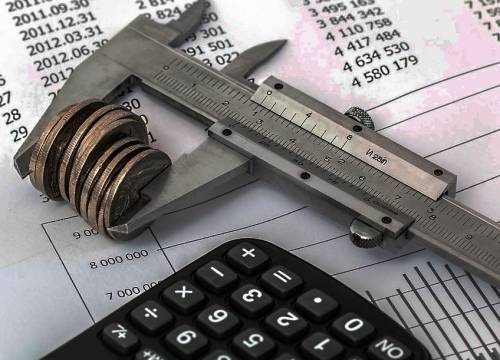
Before making additional charges for unauthorized connection to utility systems, it is necessary to establish the fact of unauthorized access to resources. To do this, service employees check:
- serviceability and performance of meters;
- the presence of seals and other instruments that record illegal interference in the operation of equipment;
- absence of vulnerabilities in connections between devices for monitoring and accounting of consumed services.
Unauthorized tapping into a water supply system: judicial practice
Issues regarding the elimination of violations by consumers who have illegally connected to water supply networks are often resolved by the court. In judicial practice, there are claims by owners of private water pipelines to declare connections to them illegal.
If there is evidence of this fact, the act of identifying an illegal connection by the court, the plaintiff’s demands are satisfied. An example is the decision of the Voroshilovsky District Court of Volgograd in case No. 2-348/2012.
The Dolinsky City Court of the Sakhalin Region in case No. 2-133/2015 satisfied the demands of Vodokanal-2 LLC against persons who made an unauthorized connection to the water supply. He collected the debt from the violators for unaccounted water consumption.
On February 11, 2020, the Industrial District Court of Stavropol rejected the claim of the plaintiff in a similar case due to the expiration of the statute of limitations. As follows from practice, in order to satisfy claims in these disputes, the court must reliably establish the fact of illegal tapping by the defendant.
Sometimes people held accountable for unauthorized connection to the water supply also go to court. They usually challenge the legality of the act drawn up and the punishment imposed on them. The court may cancel the sanctions if it finds violations of the law.
Possible consequences of unauthorized connection to the water supply system
Illegal connection to the water main not only causes material damage to the service responsible for the water supply, but also poses a danger to violators and their neighbors. Illegal tapping worsens the quality of drinking water, leads to contamination of pipelines and causes the development of dangerous microorganisms in the water, such as E. coli and so on.
For your information
Another common situation that arises during unauthorized tapping is serious technical violations in the water supply system. So, there may be a decrease in water pressure or, on the contrary, an increase in its supply pressure. If the water supply is laid incorrectly, the pipes freeze in winter, which also leads to serious damage to the system. Therefore, it is so important to connect and maintain the water supply through specialized services.
Illegal connection to the water supply, liability, consequences
Unauthorized connection to the water supply system will entail quite serious consequences.
If a violation is revealed, a very substantial fine will be imposed on the citizen who did not report the connection, and the water supply system will be turned off.
As practice shows, in some cases, users may not pay water bills for years, and if violations are discovered, the fine for them may be an order of magnitude higher than the cost of the site itself.
In addition, the structure engaged in water supply may also be subject to additional punishment for the violator, since by not receiving less payment for the services provided, it suffers material damage. And finally, it is possible that in the event of a violation that entailed quite serious negative consequences for others or public utility organizations (for example, a massive failure of the water supply network), criminal proceedings may be opened against the violator.
Fine for illegal tapping into water supply
According to the requirements of the current legislative framework, connections in the water supply system must be carried out exclusively in agreement with utility services. Otherwise, the user will not escape responsibility, and a fairly substantial fine will be imposed on him.
At the moment, the fine for illegal tapping (connection to a water supply) can be up to 10 thousand rubles. Previously, there were fixed fines, the amount of which did not exceed 1.5 thousand rubles.
However, subsequently it was decided to tie the amount of penalties to the water actually used, since a thousand rubles did not compensate for the costs of utilities.
More precisely, the throughput of the main pipe is taken into account, as well as the average consumption per household for subsequent periods. As practice shows, after such calculations are made, the amount of the fine will be significant, and in most cases will significantly exceed the amount that would be required to connect to the water supply with approval.
Illegal tapping into a sewer and a fine for it
In addition to penalties from the utility service, the violator should also be wary of water supply organizations.
As the law states, any action not agreed upon with responsible officials results in material damage to the supplier.
Based on this, the supplier company can at any time initiate legal proceedings to bring the violator to justice. In such a situation, the citizen who violated the actual legislation will be held accountable and will be subject to another fine equal to the amount of material damage caused to the supplier.
If the actions of the violator led to more serious consequences, for example, to an emergency situation, then in this case the punishment will be much more severe.
Among such situations, the lack of hot water due to an accident, as a result of which the tap became cold.
It is likely that in the above example, the violator can not only pay a fine for illegal tapping, but also receive a real prison sentence of 1 year!
Actions if you have already connected to the network without permission
Sometimes new home owners discover that they are connected to the central water supply system illegally. Often, in situations of unauthorized connection of water supply, it is very difficult to prove one’s non-involvement in breaking the law. Citizens who discover that they are using water illegally are required to immediately report this to the utility service.
As a rule, after identifying the fact of unauthorized connection of the water supply, a commission is assembled, which draws up a corresponding act and disconnects the user from the water supply. If a person has evidence of non-involvement in the violation, then sanctions can be avoided. In this case, you will need to legalize your connection to the network. An insert made in compliance with the requirements of SNiP is not dismantled, however, the user of the resource must collect a package of documents, including permits, certificates, and technical documentation.
IMPORTANT
Licensing of illegal tapping is carried out by organizations located on the territory of the local water utility. They will help you fill out an application for connecting a new line. This will help avoid possible fines and other penalties.
What to do if an unauthorized connection has already been made?
If you have already connected to the network without permission, you can try to avoid punishment.
One way is to contact utility officials. A positive, peaceful resolution of the problem is possible if the consumer did not know about the presence of the tie-in (for example, when buying a new house) and always paid utility bills on time, including payments for water and sewerage.
ATTENTION! In order to legitimize the connection, the owner of the site where it was carried out must write a statement.
If the user did not know about the presence of the tie-in, he will most likely avoid a fine. It will be enough to comply with all the orders of the water utility, obtain permission to legally connect to the water supply, and prove payment for water supply using receipts.
Arbitrage practice
Below are examples taken from judicial practice in the form of claims against persons who unauthorizedly connected to the water supply:
- The water utility of city A filed a lawsuit against citizen B to recover payment for illegal connection to the water supply network. The defendant’s home was disconnected from the system, and the court, based on witness testimony, decided to recover from B the amount of money that Vodokanal demanded and legal costs. The defendant may file an appeal within a week from the date of delivery of a copy of the court decision.
- Vodokanal LLC "B" filed a lawsuit against B to collect debt for the use of water resources and sewerage without concluding an agreement. Citizen B is the owner of a non-residential property, as a result of an inspection it was determined that the water supply was connected illegally. Referring to the rules for using water supply systems, the court ruled that the defendant is obliged to pay the amount required by Vodokanal LLC “B” and the cost of the state fee for the trial.
What does unauthorized tapping mean?
Unauthorized use of water supply networks means that the consumer connected to the water supply without special permission for this type of work.
There may also be a connection in violation of technical conditions , which are implied by construction standards for the installation of equipment.
ATTENTION! For the tap to be legal, the consumer (individual or legal entity) must enter into an agreement and obtain consent from the water utility, another authority that supplies water to the house.
If employees of organizations that ensure the technological process of supplying water and transferring it to the user discover unauthorized use of the systems, they can file a claim against such a subscriber (including in court) and issue a fine for illegal tapping into the water supply.
The premises will be left without water supply for a long time until connection to the system is carried out according to the law, and a fine is paid.
The main document defining the procedure for connecting to utility networks is the Rules for the provision of utility services, approved by Government Decree dated 05/06/11, No. 354.
